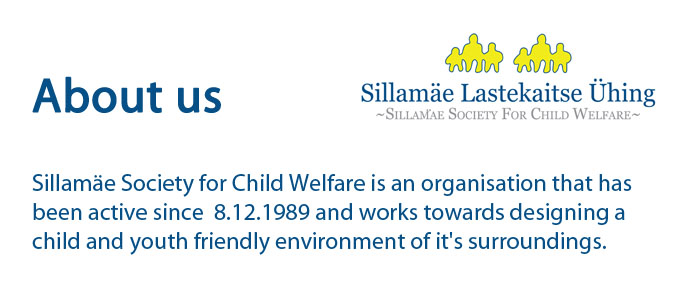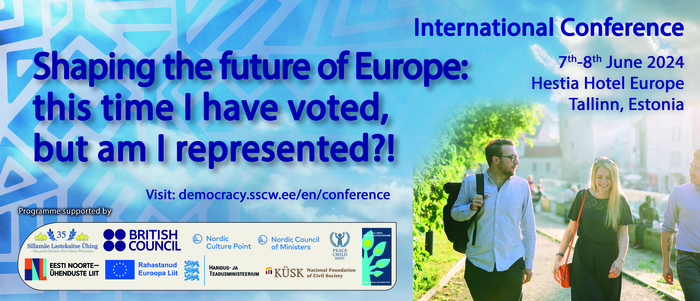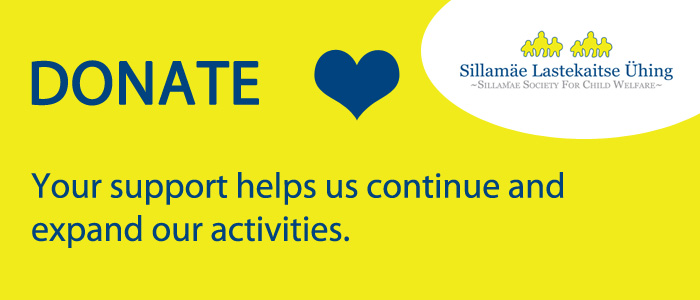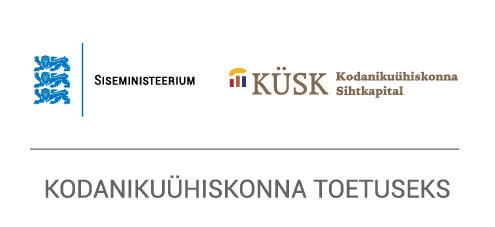Regional Call for participants to take part in the upcoming international security and civil society conference 2023
Security & Civil Society Conference 2023 is a three-day event (3rd, 4th and 5th February 2023) that will include an intensive programme of high-level discussions, working groups, development of the civil society and international stakeholders appeal (declaration) to the international community. A one-day preparatory meeting and visits in Estonian Government Institutions and Estonian representation of the European Commission will be organised for the high level experts and invited speakers on the 1st and 2nd February 2023 in Tallinn.
The geopolitical shock and the consequences following from the Russian invasion in Ukraine are also influencing security and democracy development in three key regions: Charting Ukraine’s and Moldovan`s Future in European Union, conscious Nordic-Baltic security policies to becoming NATO members and global & regional influence on Mediterranean security environment. We will discuss the role of CSOs and different stakeholders in achieving peace and the importance of intercultural dialogue in healing divides and reconciling societies. Key foreign and security policy issues will be discussed mostly from the perspective of the Euro-Mediterranean region, Northern and Eastern parts of Europe.
The conference is an opportunity to reaffirm the significance of the importance of the work of the European Union, NATO, OSCE and its member states for promoting peace on the continent and achieving a safer, greener, socially sustainable and digitally integrated community. The conference will connect regional networks of practitioners, distinguished policymakers, civil society organisations, analysts, politicians, military personnel representatives, academics, media and international donors from Europe and foreign actors of the Euro-Mediterranean region and abroad.
The international event is open to all interested individuals, representatives from public, private and civil society sectors whose work is connected directly or indirectly with politics, civil society, media, security questions, peace promotion and the UN SDG-s. We welcome youth organisations, educational institutions, finance industry leaders, academics, researchers, legislators, planners and policy specialists in all relevant areas, representatives from International institutions, intergovernmental organisations, governments, ministries or departments, international donors, national and regional human rights organisations. For international and local participants a total of 100 places are available.
At this conference, the Narva Declaration will be finalised and approved, together with local Citizens’ Action plans, which will be submitted to the European Commission, International Institutions, international and governmental organizations, media and various of thematic networks who is working on achievement of peace, security, democracy, rule of law and support of CSOs in Build Resilient Societies.
The online participation in the conference is free and open to all interested, but please apply for online participation.
To ensure the best collaborative experience for all, the oline conference event will be limited to 50 participants.

The Conference topics will cover for example on
- Charting Ukraine’s Future in Europe as free, democratic sovereign state” / “Moldova’s Future: East, West, or Somewhere in the Middle?”: As International community and CSOs affirming the vital importance of having their number intricately involved in efforts to rebuild Ukraine’s infrastructure and institutions, and contribute to sustainable reforms; not just as watchdogs, but as true partners throughout the process, where each party could make own valuable contribution. Despite the rapidly changing reality and the upcoming geostrategic changes, we will try to present a positive agenda for the development of events for Ukraine and the world community in achieving peace throughout the internationally recognized territory of Ukraine. To understand Moldova future we need to be able to understand existing factors and challenges what country and society are facing including internal and external actors who play the leading role in the future of Moldova. Will the global powers enable to support the UN to be more effective at promoting peace and preventing conflict, through enhanced peace-keeping and conflict transformation;
- “Mainstreaming more conscious Nordic-Baltic security policies to becoming NATO members and supporting sustainable development to become the world’s most sustainable and integrated region in 2030”: The Nordic countries share a common security environment, and are engaged in close foreign, security and defence policy cooperation. Nordic foreign, security and defence policy cooperation has deepened further in the past few years. The Nordic Defence Cooperation (NORDEFCO) is a good example of the closer cooperation. With Finland and Sweden as NATO members, the threshold for using military force in the Baltic Sea region will rise, which will enhance the stability of the region in the long term. NATO is a stabilising actor in the Baltic Sea region and from Russian perspective not at all. In 2022 the war in Ukraine has affected the world – as hard security as the digital sphere – in unforeseen ways. The intentional destruction of infrastructure in Ukraine, including digital infrastructure, illustrates the need for resilience in communication networks in order to prevent the risk of regions being isolated. It also demonstrates how important it is that we can rely on our communication networks to ensure availability and continuity of essential services for our citizens. In addition to the cyber-attacks in Ukraine, we have also seen a growing trend of organized cyber-crime on an international level. Therefore, a high level of security in the digital services that our societies rely on, has become increasingly important.
- “Global powers, region states and civil society contributions in Mediterranean region for peace, security and sustainable development”: The Mediterranean region continues to struggle with terrorism. Countries like Turkey and Egypt are still facing violent acts perpetrated by radical groups, a situation which affects the European security environment as a whole directly and indirectly the threat of terrorism emanating from Europe’s southern periphery. These risks are hardly new, but they have acquired new meaning in light of the sustained conflict and political instability around the southern and eastern Mediterranean, and the persistent economic and social pressures across southern Europe. Above all, terrorism concerns and counter-terrorism partnerships will underscore the strategic importance of the region on both sides of the Mediterranean at a time of flux in national, NATO and EU strategies. Mediterranean security environment as a whole will continue to be strongly affected by this threat, and the continued recruitment of terrorists throughout the region. State fragility in the Euro-Mediterranean regions and possible intersections of terrorism with systemic security issues in the global sense, including climate change, maritime issues, and migration will be addressed alongside the wider dimensions of military issues, including the presence of major powers naval units in the Mediterranean and how each country views the other’s long-term regional ambitions.
- “Climate Change and Energy crises: Green Revolution still achievable by 2050? – Transforming global consumption patterns and investing in clean energy – As electricity prices surge on the back of dwindling gas supplies from Russia, calls are growing to bring relief to European households and businesses – some of which are being pushed to bankruptcy. The calls are being heard as EU energy ministers prepare to hold an extraordinary meeting to discuss the EU’s response to the crisis and of course to keep in agenda green revolution what EU agrees to achieve by 2050. Experts will provide own perspective on existing crises and update of EU policies.
The working language is English. Arabic translations will be provided.
NEW WEB PLATHORM ON THE WAY!
Dear reader, member and partner
SSCW is developing a new communicatin and informative plathorm.
Due to SSCW is an organisation with a long history and wider field of actions we hope to fish developing a new SSCW 2.0 communication tool by the end of February 2023.
Please contact us info@sscw.ee if you need an update about programm activities or visit us on Facebook.
Brief introduction to the SSCW
SILLAMÄE SOCIETY FOR CHILD WELFARE
Sillamäe Society for Child Welfare (SSCW) is a public interest nongovernmental organisation that was created December, 8th in 1989. During these years SSCW has been working actively towards creating a child and youth friendly environment in our society. Each year we have broadened the reach of our activities to initiate broad-based and society-wise noticeable initiatives. Today SSCW has conducted and supported more than 130 projects not only on the county but also on country and lately on an international level
SCSW activity is consistently expanding. Activities have been directed at the entire nation and more specifically different areas of the nation like Sillamäe, Tallinn, Harju County or Ida-Virumaa. SSCW has celebrated 25th anniversary in year 2014. A small regional organisation has grown over two decades into a respected organisation, capable of conducting project and initiatives on the local, national and international level and is a part of (among other things) Estonian Civil Society Concept joint committee, European Anti-Poverty Network (EAPN), Anna Lindh Foundation Estonian network, Estonian Roundtable for Development Cooperation, and has a consultative status with ECOSOC at the UN.
Although the organisation has recieved bigger international opportunities SSCW has always valued local development at Ida-Virumaa and actively involving organisations who don’t speak Estonian as a main language. SSCW translates information related to civil society and organises events to increase awareness and skills, among them Ida-Virumaa Civil Society Forum and Ida-Virumaa Youth Forum. SSCW is presently also in charge of Ida-Virumaa Civil Society Network.
Our development cooperation consists of activities that we do in the frameworks of our projects, especially relating to international cooperation. We have done several projects in cooperation with our partners from Africa, Asia and Southern American countries. With countries of North-Africa (Morocco, Egypt, Tunis) we cooperate on developing their civil society and we support (when we can) youth organisations and community development. We are also an active member in the networks of Peace Child International and Water & Youth, where we contribute to environmental issues and have participated in expert meetings in Scotland (UK), Korea, Canada, Argentina, Turkey, Brazil and Spain.
In addition one of our organisation’s programmes is propagating healthy and environmentally conscious lifestyle and raising awareness of Intercultural Dialogue and World Education.













